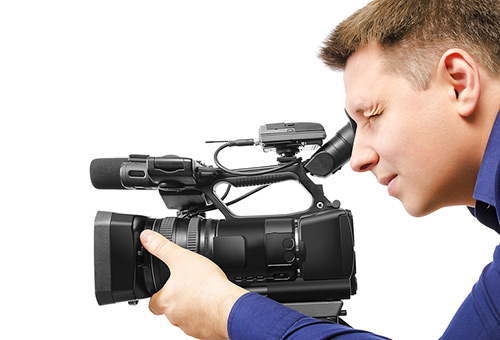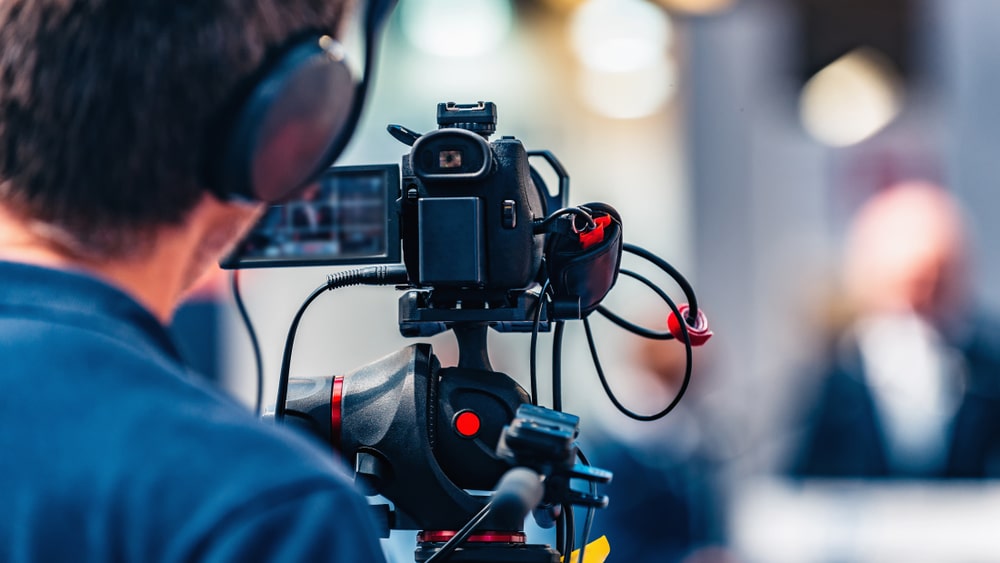The Role of Lawful Videography in Depositions and Trials
Lawful videography has actually become a necessary tool in both depositions and tests, giving a complex method to documenting witness testimonies. By catching not just the talked word but additionally the nuances of non-verbal communication, this tool enhances the integrity of testimonies and maintains crucial evidence for future procedures. As attorneys progressively acknowledge its worth, it triggers a deeper evaluation of how these visual documents can affect juror assumptions and test results. What ramifications might these advancements hold for the future of legal practice?
Significance of Lawful Videography
Lawful videography plays a critical role in the documentation and presentation of depositions and trials. This customized field combines technological skills with legal expertise to create a trustworthy record of proceedings that can dramatically influence case results. The appearance of legal videography boosts the understanding of witness statement, permitting jurors and judges to observe not just the spoken words but likewise the behavior, feelings, and body language of the witnesses.

The value of legal videography extends past the court; it also plays a vital duty in protecting evidence for future referral, whether for charms or further lawful action. Its assimilation right into the legal process is essential for making certain a fair and exact representation of the realities, ultimately adding to the pursuit of justice.

Process of Legal Videography
While recording the subtleties of depositions and trials, the process of legal videography includes numerous critical steps that guarantee high-grade, accurate recordings. A specialist lawful videographer prepares by assessing the case materials and understanding the specific requirements of the deposition or trial. This preparation includes familiarizing themselves with the participants and the context, which aids in capturing important details.
On the day of the recording, the videographer establishes the required equipment, which usually includes high-definition video cameras, microphones, and proper lighting. Ensuring optimal angles and audio quality is crucial, as it straight influences the performance of the recording. The videographer interacts with attorneys and participants to develop methods, making sure that everybody comprehends the recording process.
Throughout the deposition or test, the videographer thoroughly tape-records the proceedings, paying close attention to both spoken and non-verbal hints. legal videography. This includes recording the temperament and responses of witnesses and attorneys. After the session concludes, the videographer might edit the footage for clarity and conformity with legal standards, generating an end product that precisely mirrors the procedures for future reference and usage in legal contexts
Advantages in Depositions
The consolidation of videography in depositions provides countless advantages that enhance the general process of collecting evidence. One key benefit is the capacity to catch witness testimonies with aesthetic and auditory integrity, offering an extra accurate depiction of the witness's behavior, tone, and body movement. This multidimensional technique permits attorneys and courts to evaluate reliability extra successfully than traditional written transcripts alone.
In addition, videographed depositions serve as an effective tool for Homepage protecting testament. Ought to a witness come to be unavailable for trial, their videotaped deposition can be played in court, guaranteeing that their browse this site proof continues to be available and pertinent. This aspect substantially reduces the danger of shedding crucial info that can influence case results.
In addition, the use of legal videography promotes much better prep work for lawyers. Reviewing video footage enables legal groups to assess and refine their techniques, determining toughness and weak points in their cases. This preparatory advantage can result in more compelling discussions in court.
Finally, videography boosts the total professionalism and reliability of the deposition process, instilling confidence in clients regarding the thoroughness of their legal representation. By leveraging technology, attorneys can substantially enhance the efficiency of depositions.
Effect On Trials
In numerous trials, the integration of videography can considerably influence the presentation of evidence and the jury's perception. Legal videography records witness testaments and essential proof in a vibrant style, enabling jurors to engage with the material on numerous degrees. This visual component enhances the storytelling aspect of a test, supplying context and emotional resonance that traditional text-based proof may lack.
Moreover, video clip recordings can function as powerful devices for impeachment throughout cross-examination. When disparities develop between a witness's previous declarations and their courtroom testimony, video clip evidence provides an unbiased recommendation that can sway jurors' point of views. This immediacy and clearness can bolster the credibility of an event's story while all at once weakening opposing arguments.
In addition, the use of videography can aid enhance complex details, making it much more obtainable to jurors who might have a hard time to grasp complex details presented exclusively through verbal testament. By incorporating visuals with auditory details, legal videography can improve retention and understanding, ultimately influencing the court's decision-making process. Consequently, the impact of videography in tests extends beyond plain looks; it plays an essential function in shaping the legal landscape and results.
Future Trends in Legal Videography
As we look towards the future of legal videography, a number of arising fads promise to reshape its function within the court room. One significant pattern is the combination of expert system (AI) in video analysis and editing and enhancing - legal videography. AI can streamline the process of determining vital minutes in recorded depositions, enabling attorneys to swiftly access pertinent web content, thereby enhancing effectiveness in situation preparation
Additionally, the rise of digital more info here fact (VIRTUAL REALITY) and augmented reality (AR) technologies is expected to transform how jurors experience evidence. By immersing jurors in a simulated environment, these technologies can give an extra extensive understanding of intricate circumstances, leading to even more enlightened considerations.

Moreover, the increasing need for remote depositions, increased by the COVID-19 pandemic, will likely proceed. Legal videographers will require to adjust to new software application and platforms to ensure top quality recordings in virtual setups.
Finally, the growing emphasis on information safety will necessitate more stringent procedures for keeping and sharing video proof. As the legal landscape evolves, lawful videographers need to stay abreast of these fads to keep their significance and effectiveness in the judicial procedure.

Conclusion
In recap, lawful videography serves an important feature in the judicial process, boosting the honesty of depositions and tests. As technology continues to develop, legal videography is poised to additional change its function within the lawful landscape.
Comments on “Comprehensive Legal Videography for Depositions.”